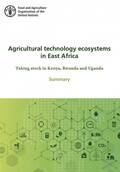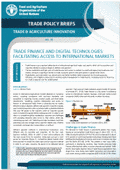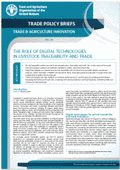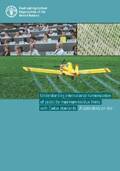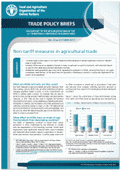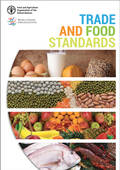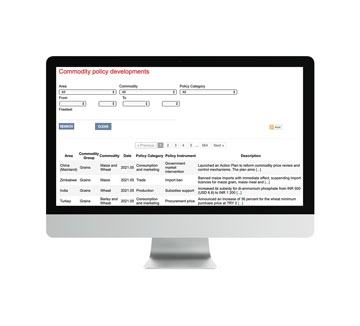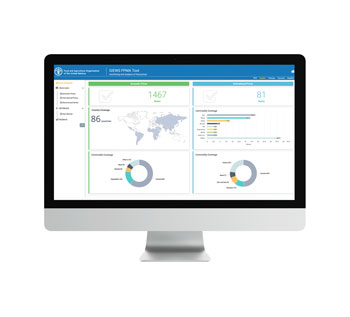Trade in an evolving context: international standards, innovation and digitalization
Advances in information and communication technologies are fundamentally transforming food systems, including the ways in which agricultural trade is organized. This can affect the competitiveness of different actors within value chains, presenting an evolving need for analysis and technical assistance. At the same time, in developing countries there is a great need to improve capacities to meet international standards for food safety and plant and animal health to gain better access to global markets. FAO supports its Members through evidence-building on emerging issues and provides technical assistance in response to demands relating to food safety and trade facilitation, trade digitalization, and innovation, among others.
Key messages
| Non-tariff measures, particularly procedural bottlenecks in the application of sanitary and phytosanitary (SPS) and technical barriers to trade (TBT) measures, present significant obstacles to trade. | |
| New technologies that present advantages in food production, processing, handling, distribution and trade, continue to be developed, but significant challenges to their widespread adoption in developing countries remain. | |
| FAO supports regional and national institutions to better prepare for technological and regulatory changes, promoting the effective participation of countries in the global trading system and better market access for small and medium scale value chain actors. |
Featured Resources
-
Agricultural technology ecosystems in East Africa - Taking stock in Kenya, Rwanda, and Uganda
Published: February 2023
-
-
-
No. 26 Non-tariff measures in agriculture trade
Published: January 2017
-
Published: April 2017
Digital Tools
Commodity Policy
Developments
Commodity markets
FPMA
Food Price Monitoring and Analysis
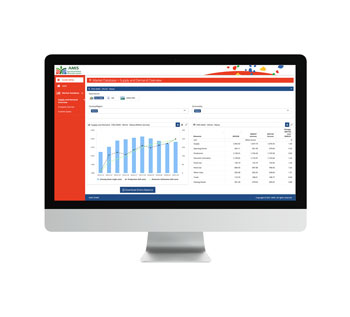
AMIS
Agricultural Market Information System



